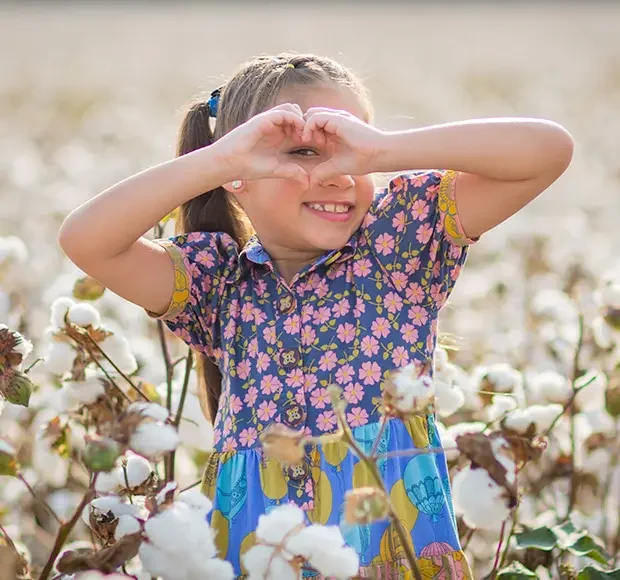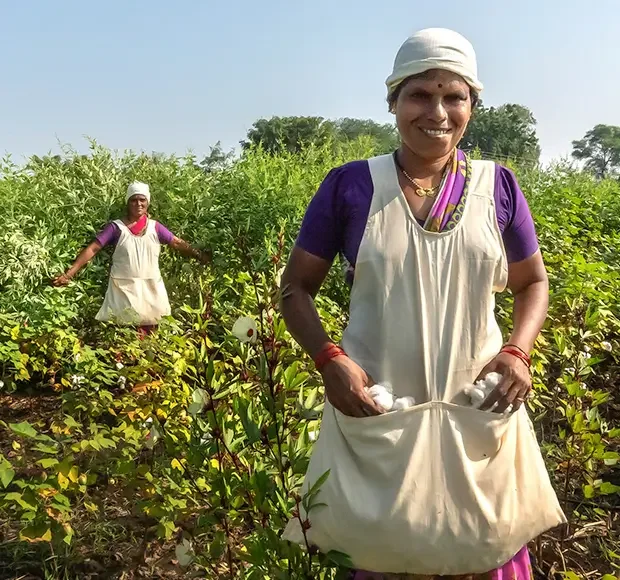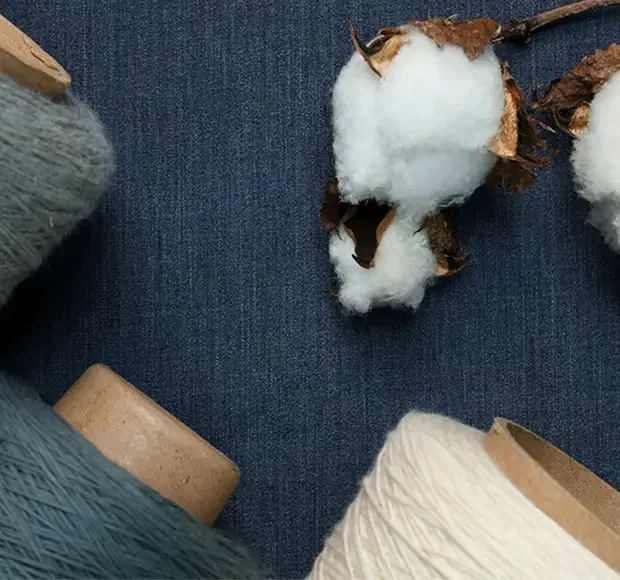Organic Cotton
Why Organic Cotton?
Organic cotton is grown without synthetic pesticides, fertilizers, or GMOs, prioritizing soil health and biodiversity. At Aung Crown Green, we use GOTS-certified organic cotton to craft hats that are gentle on the planet and safe for sensitive skin.



Responsible production process
Grown from non-GMO seeds using regenerative practices like crop rotation and composting to enhance soil health. Saves 71% water and eliminates synthetic pesticides through rainwater efficiency and natural pest management. Supports farmer communities with fair trade partnerships and protects ecosystems via GOTS-certified processes.
Authoritative certification, rest assured to choose
Global Organic Textile Standard (GOTS):
GOTS certification ensures organic cotton meets strict environmental and social responsibility standards, including the prohibition of chemical pesticides and fertilizers, and ensures the production process is environmentally friendly.
OEKO-TEX® Standard 100:
This certification ensures that organic cotton products are free from harmful substances during production, safe and non-toxic, suitable for direct skin contact.
OEKO-TEX® Made in Green:
This certification ensures that organic cotton products are harmless and meet environmental requirements during production, while ensuring the production environment adheres to social responsibility standards.
SGS Social Compliance Audit:
SGS social compliance audit certification ensures suppliers adhere to social responsibility and labor regulations.
Why Organic Cotton
- Health and Safety: chemical residue, through GOTS, OEKO-TEX® certification, baby skin friendly standard.
- Excellent quality: The fiber is longer and softer, resistant to pilling and water washing, and its service life is increased by 30%.
- Flexible customization: Support blank cloth/finished cap customization, optional no print minimalism or embroidery/silk screen LOGO.
- Land protection: The use of organic cotton hats is equivalent to protecting hundreds of hectares of land from pollution every year.

Q1: Is organic cotton more expensive?
A: Yes, but our bulk pricing ensures cost parity with conventional cotton.
Q2: How durable is organic cotton?
A: Longer fibers enhance durability – tested for 50+ washes without pilling.
Q3: Can I customize colors and designs?
A: Yes! Choose from colors and add your logo via embroidery/screen printing.
Q4: What certifications do you have?
A: GOTS, OEKO-TEX®
, and Fair Trade certified.